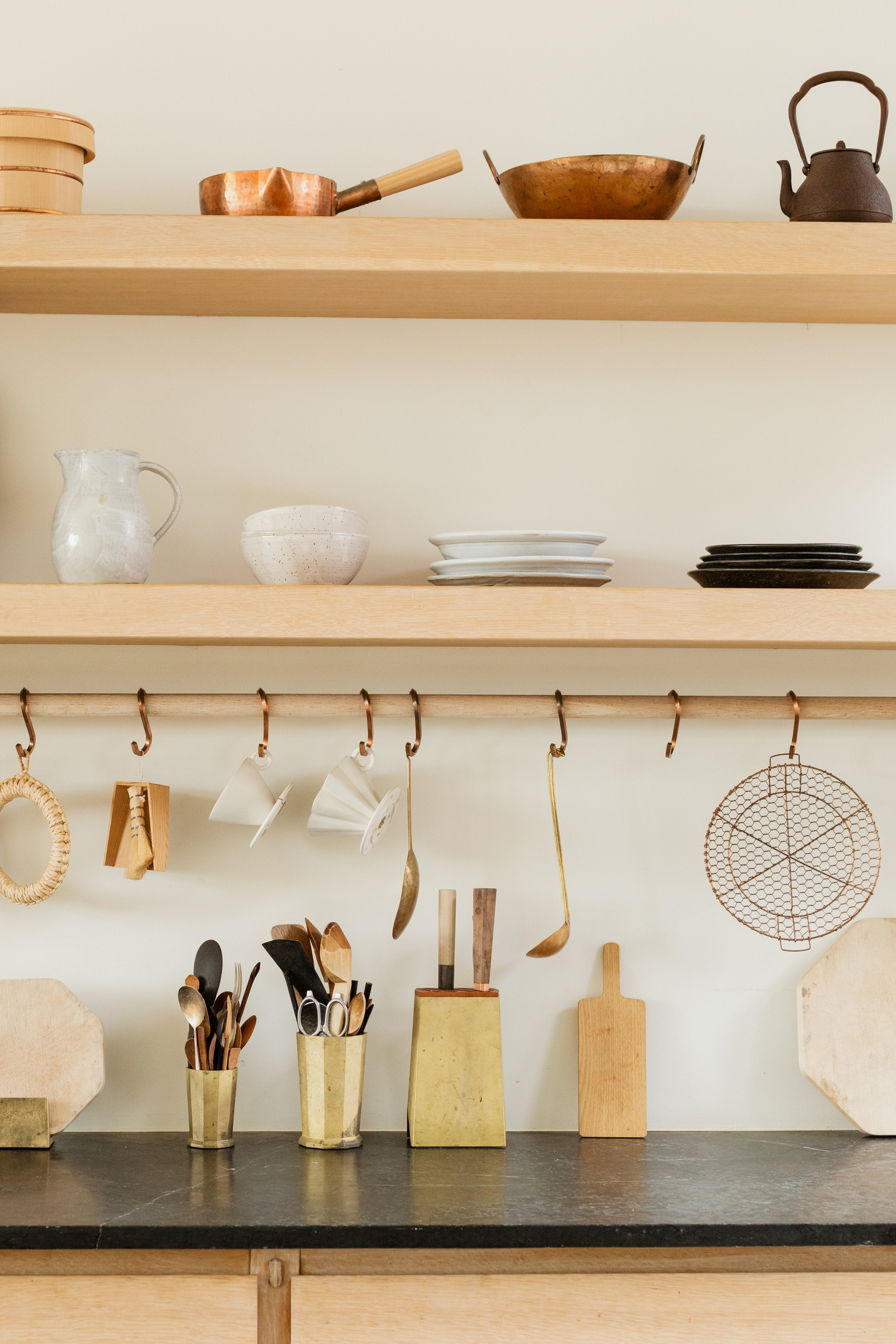
Simple Swaps for a More Sustainable Kitchen
Jan 4, 2023| By JOI team
Jan 4, 2023| By JOI team
Simple Swaps for a More Sustainable Kitchen
Almond-Base | Cashew-Base | Creamer-Base | Dairy-Free | Keto | Oat-Powder | Recipe | Sugar-Free | Vegan | Vegetarian |
We’re all (thankfully) thinking a little more critically about climate change and our environment these days. Extreme weather is spending a little too much time in the news headlines. And the impact of how we treat this one Mother Earth we’ve got are hitting a bit too close to home. For many of us, this has meant a wake-up call on our own day-to-day habits—and seriously, the small changes can go a long way.
For us at JOI, sustainability has always been one of core values (reducing milk carton waste is what brought our co-founder Izzy to the business!). That’s why we wanted to take this Earth Day-month opportunity to think about the easy adjustments we can make in one of our favorite places: the kitchen. It’s the heart of the home, and it can (and should!) be ground zero for your more sustainable choices. Read on for four simple swaps to get started with a lower-waste approach in your kitchen, plus three bonus ideas for sustainability devotees ready to take earth-friendly practices to the next level.

Swap #1: Pass on Prepared Foods and Embrace Local Home Cooking
Ever thought about your food’s lifecycle? Wondering what that even is? It’s an increasingly common way to consider the holistic environmental impact of your food—all of the energy associated with processing and transporting it. For example, let’s think about a frozen pizza. Good chance it was made at a production facility a long ways away from where you live. And before it was even ‘assembled’, all the ingredients had to be brought to that facility, probably in semi trucks or on trains, maybe even on a plane, all belching emissions. Then, it was packaged, probably on an automated assembly line, probably using a lot of plastic. After that, it finally made its way to your local supermarket, which was very likely a journey of hundreds of emissions-heavy miles. All in, that’s a lot of environmental impact. Now, think instead about a homemade veggie curry, made with fresh, unprocessed produce, maybe even purchased from your neighborhood farmer’s market. Those veggies skipped any kind of processing or packaging line, and traveled just a relative hop, skip, and jump to the market and then straight to your kitchen. Sure, you’ll add in some packaged rice, sauces, and spices, but those are pantry staples that can be bought in bulk and last forever (and you still gotta enjoy your meal!). All in all, home cooking consumes so much less energy, making it so much more sustainable.

Swap #2: Nix Nonstick Cookware and Switch to Cast Iron
Non-stick cookware already gets plenty of flak for the potential health risks, but it’s also no secret that these pots and pans just don’t last that long. And disposable cookware=more waste. So, no matter how many benefits the packaging lists, say ‘sayonara’ to that bargain-priced nonstick cookware and invest in some quality cast iron instead. Yes, the care that must be taken with these puppies is a little more specific (no tossing a cast iron in the dishwasher), but they’re also incredibly versatile to cook with, pretty inexpensive, and can last for decades. Plus, cast iron is great for trying out delicious techniques like high-heat searing. Lodge or Staub are a couple great options to start with. And we promise—you will not miss your old nonstick pans.

Swap #3: Ditch (Traditional) Ziplock Bags for Reusable Silicone Pouches
We’re not going to argue about the convenience of "Ziplock" bags. They make sealing up leftovers or preserving small open packages super simple, without any clean up. But that ‘easy button’ factor comes with a price—garbage, and lots of it. What if we told you there was a sustainable solution that demands just a teensy-tiny bit more work? On board? Yep, you should be. Silicone snack and sandwich bags (like Stasher brand...or the new...yep...you guessed it...Ziplock reusable bags!) work just like standard disposable ziplock bags, except you don’t have to throw them away. Same simple seal mechanism, same freshness. You do have to wash them between uses, but with easy-cleaning silicone, it’s a small price to pay for keeping more plastic out of landfills. Want to take things a step further? Replace your reusable plastic Tupperware with glass storage containers instead (they’re better for preserving your food in the fridge too!).

Swap #4: Opt Out on Chemical Cleaners in Favor of DIY Alternatives
Raise your hand if you can’t quite tell what language the ingredients list on your go-to kitchen cleaner actually is. Commercially produced chemical cleaners contain all kinds of nasty ingredients that are harmful to the health of you and everyone else in your household. And, it’s almost guaranteed that those same ingredients will eventually make their way down your drains where they can be equally harmful to wildlife and even accelerate growth of some plants, ultimately interfering with natural ecosystems. Okay, have we freaked you out enough? Cool—then put down the chemical cleaner and open your eyes to all of the easy, natural DIY alternatives. There are endless recipes for incredibly effective, chemical free homemade cleaning solutions, but the vast majority start with vinegar and baking soda. Yep, it can be that simple.
Already built all of these good habits? Take the next step with your commitment to an eco-friendly kitchen and challenge yourself to adopt these gold-star sustainability practices:
- Get started with at-home composting. There are lots of options to buy or build your own backyard composting system (even countertop versions for apartment dwellers!). Save food and yard waste from the landfill, and treat yourself to the best fertilizer your garden could ask for.
- Sign up for a local CSA. Community Supported Agriculture (CSA) is an outstanding way to make sure you’re putting fresh, local, seasonal produce at the core of your diet and in turn, minimizing the environmental footprint of your food. Plus, you’ll have a built in excuse to get creative in the kitchen!
- Experiment with a raw diet. There’s no way around it—cooking uses a lot of energy. But, you don’t need to cook your food to achieve delicious, healthful meals. To really cut down on your footprint, consider incorporating more raw meals into your regular diet.
At JOI, we’re super proud of our own commitment to sustainability. Our 100% plant base concentrates are made without water, which means they are more condensed to package, lighter to ship, and stay fresh longer. They’re a great addition to your environment-conscious kitchen, and just like you, we’re always trying to make the small changes to treat our planet a little better.
Hey, let's make everyDAY EarthDAY!
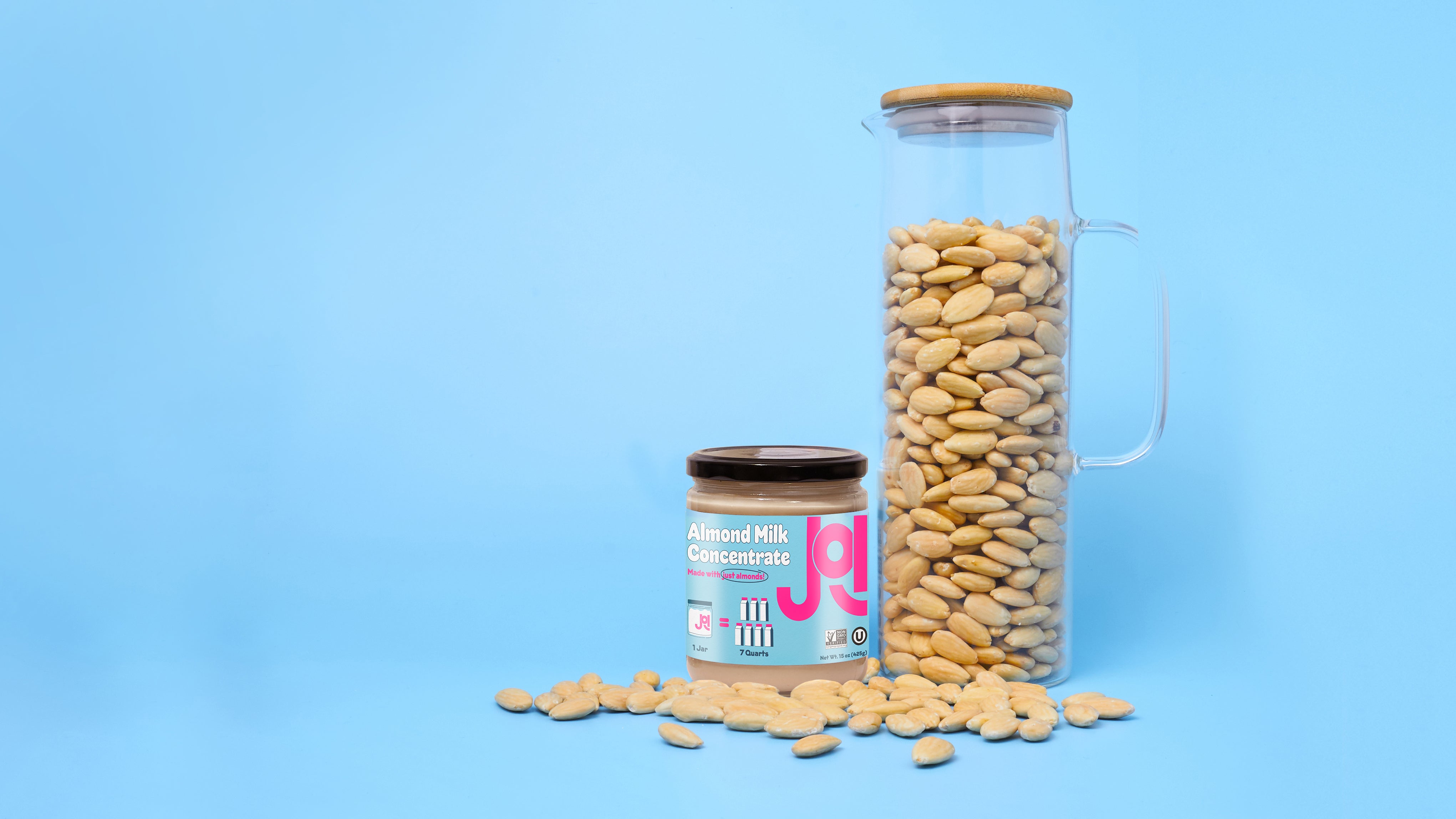
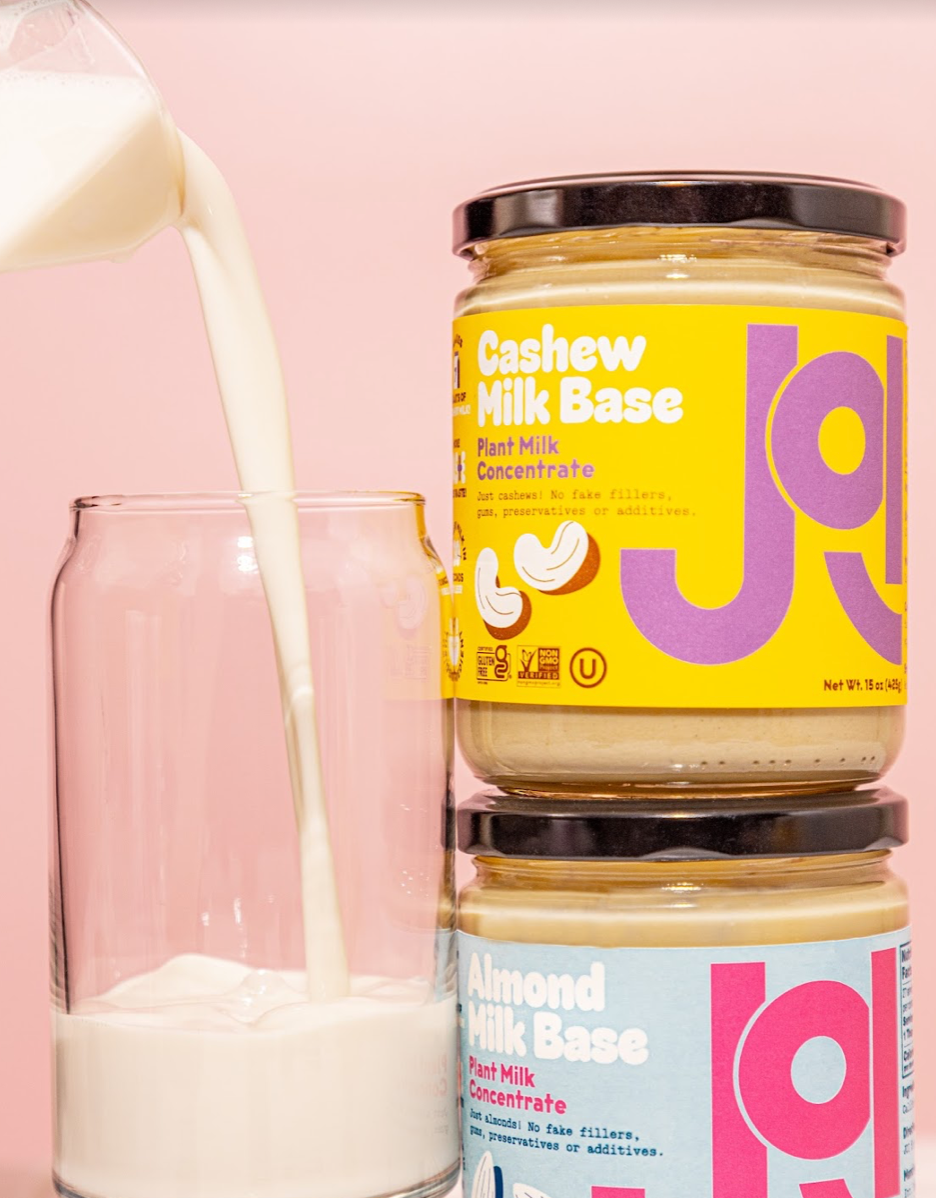
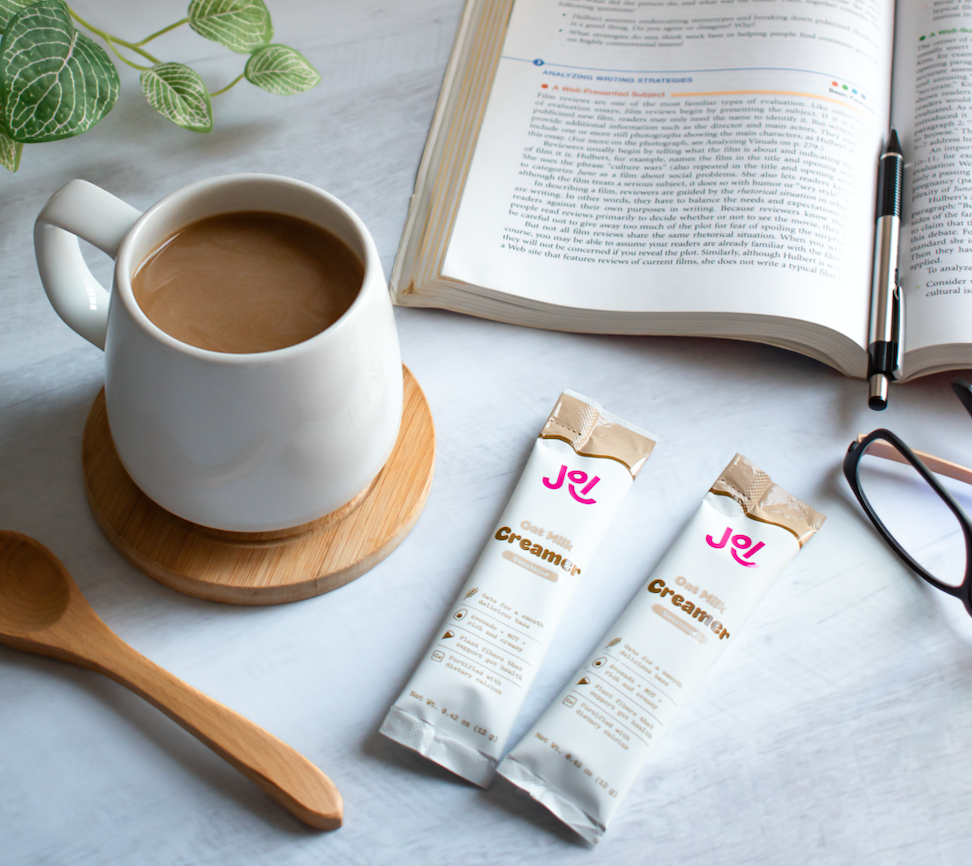
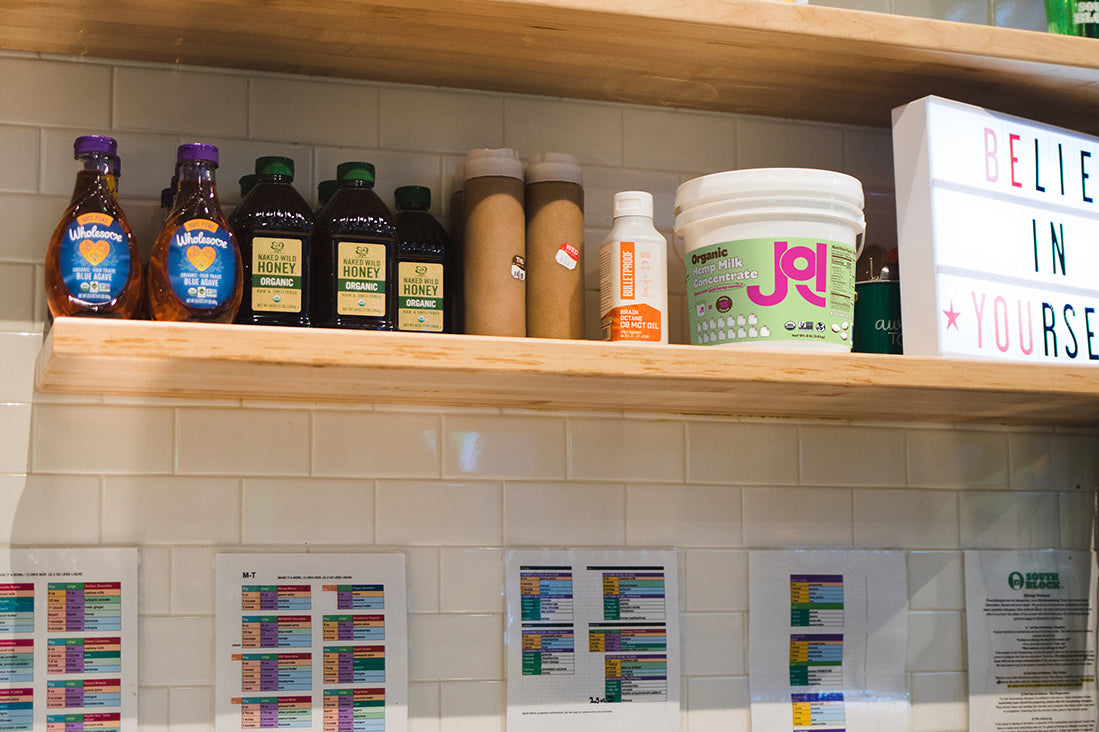
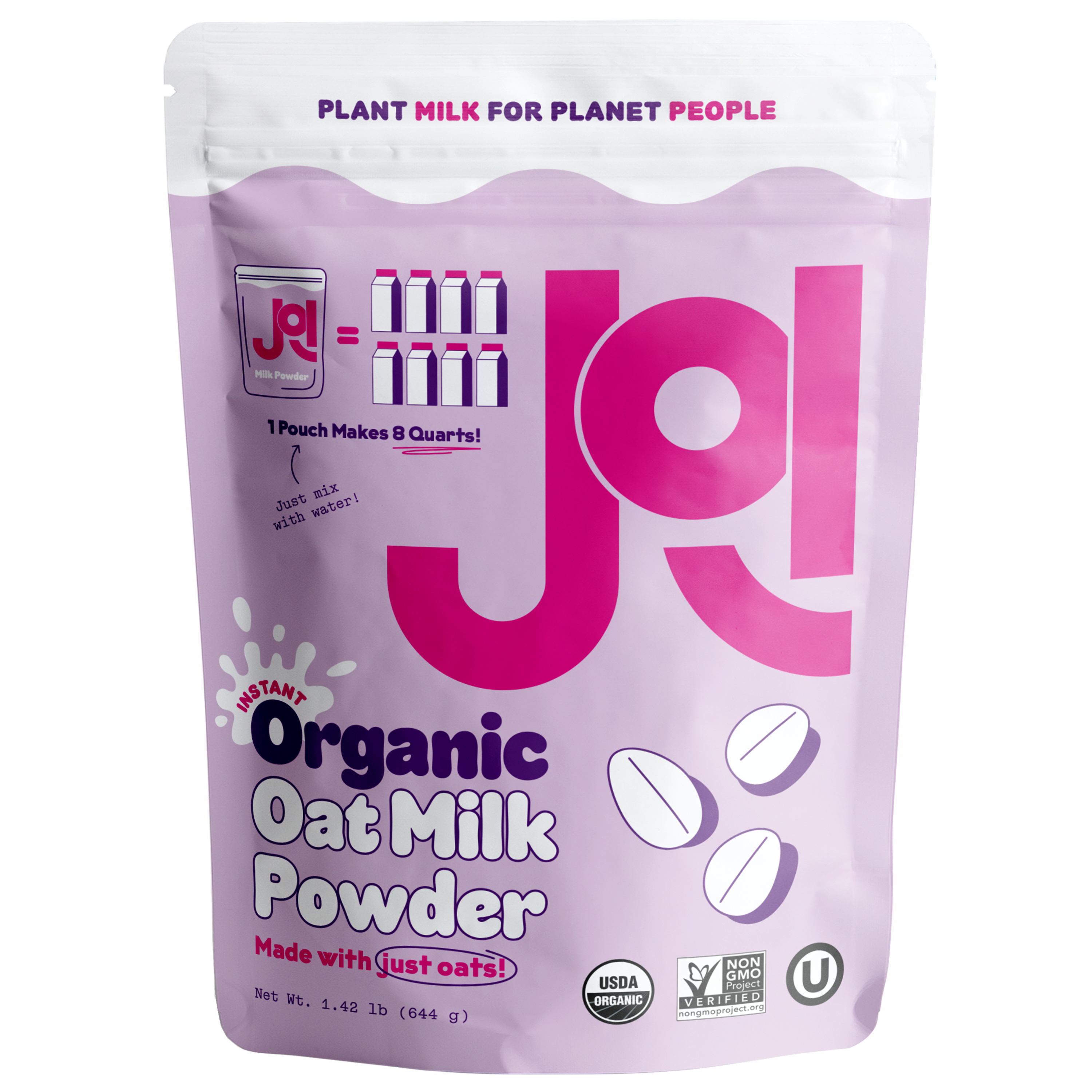
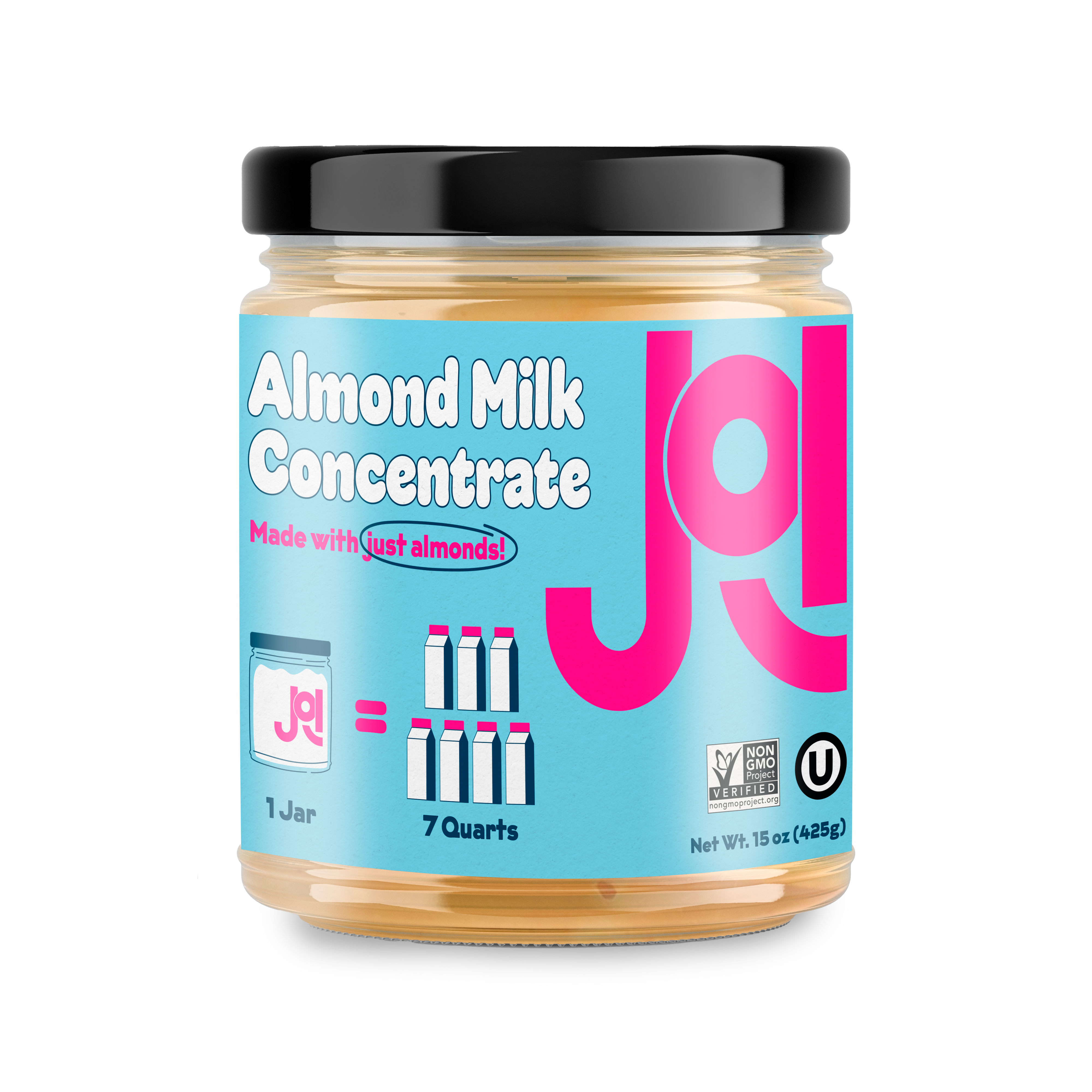
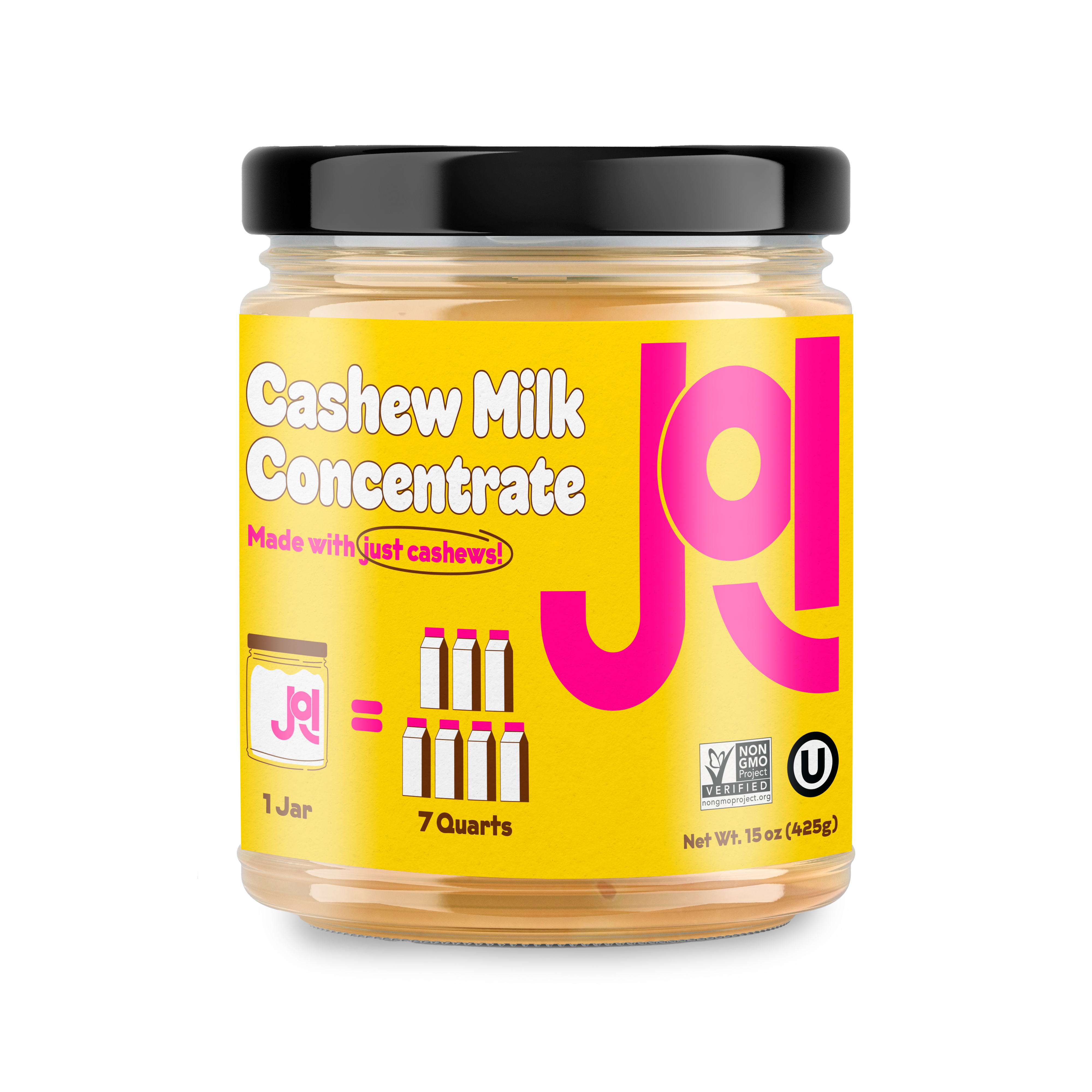
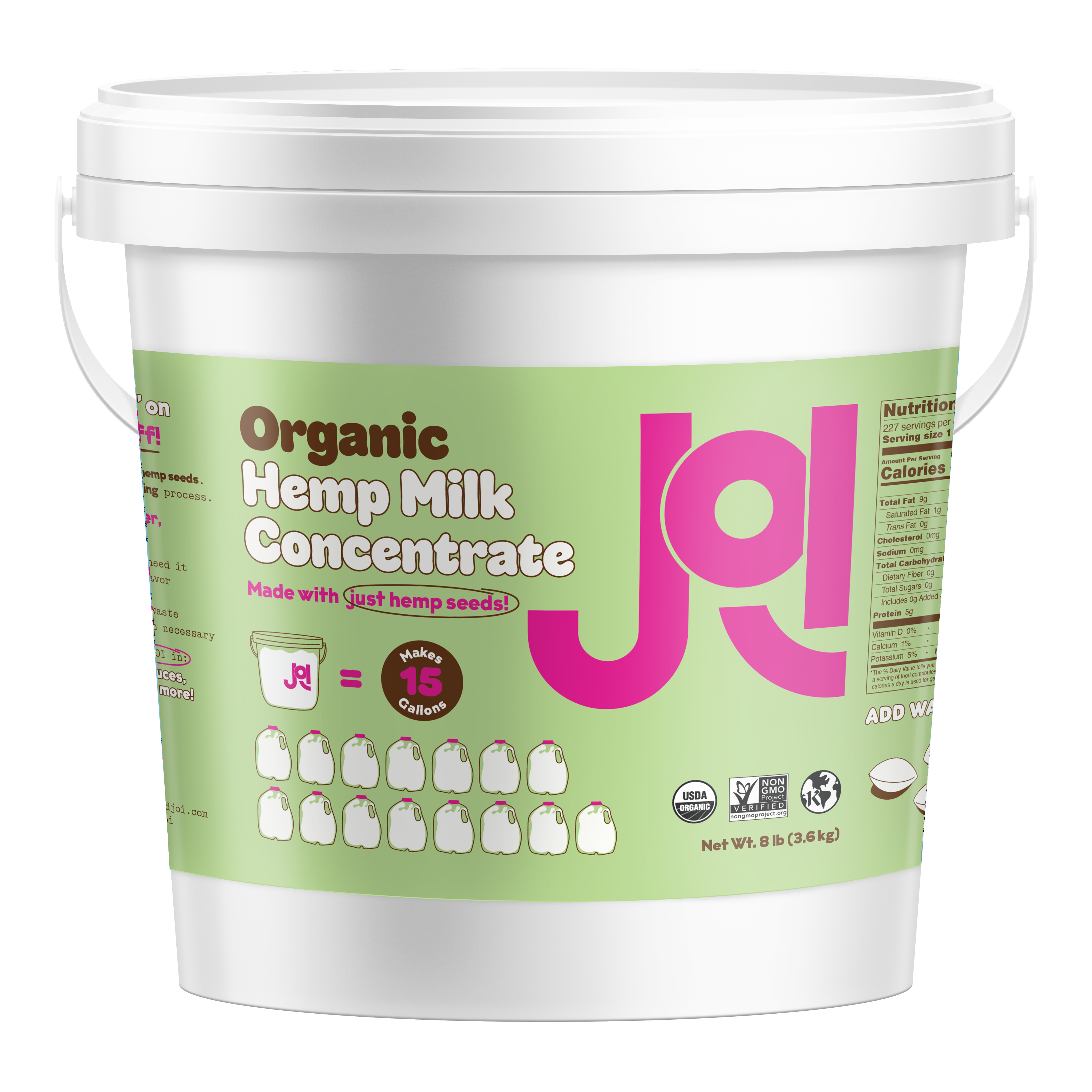
 CHECKOUT
CHECKOUT
1 comment
Love my cast iron!!
I use left over Joi glass jars and Mason jars for leftovers, easy to see and no plastic waste, a win win.